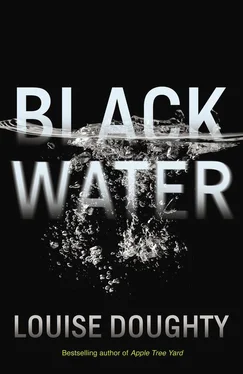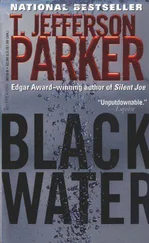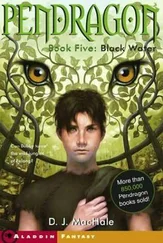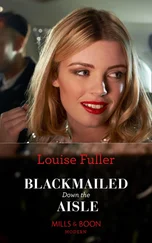Harper moved closer to the wall but kept walking, looking at the ground. He could smell paraffin. Buildings set alight almost always meant people set alight too.
The moped didn’t matter. He could find some other way of getting out to Parno’s. He had the holdall, covered in dirt and battered, but intact, and with the leather case still inside it, that was all that mattered. His bruises would heal. And he didn’t think his back was broken — but every time he moved his left leg, arrows of pain shot up his side, torn ligaments perhaps? With each stab of pain, a wave of nausea and dizziness gripped him.
He needed to get off the streets. A man who looked as though he had barely escaped with his life from a beating was offering himself up to the next lot who wanted to finish the job.
He turned a corner: a side street, a small mosque on the corner, an administrative building next to it, at the end of it another corner, and at once he was in a quieter district, on the edge of a kampong but still adjacent to the main roads. Safe for a moment, he paused at the end of a street that was, when life was normal, a small, local market. It was closed and unnaturally deserted. The stalls were boarded with whatever might have been to hand: some with properly constructed wooden shutters or doors. Other families had made makeshift attempts to protect what little they had by nailing broken boards and bamboo poles in criss-cross patterns across the front. Yet others, who could not protect the open area of their stalls, had simply stripped every object from the shelves. In the back rooms, plastic buckets and wooden carvings and boxes of fruit would be piled high and, amongst them, he guessed, families cowering, waiting for things to become calm again. The stink of burnt rubber and paraffin drifted over this area too. Amidst the chaos, though, lives still had to be led, children calmed and fed. Somewhere further along the market street, someone was cooking: beneath the stench he could smell coconut oil and dried fish, smoke and spices.
Without warning, rain dropped from the sky, falling in a sudden solid waterfall. He tipped his head back and opened his mouth to catch the water, letting the hard fat drops wash the dirt and blood from his face. He would have liked to stay there until he was soaked but couldn’t risk the rain seeping through the tough canvas of his holdall and into the leather case.
At the end of the market street was a ragged shack, sloping and derelict. Through the empty porch area, there was a broken door that wasn’t even boarded — it opened easily, half on its hinges. Behind the door was a small square room of the sort a large family would sleep in, head to toe; a dirt floor, an empty wooden crate and a single broken plastic sandal in one corner — recently abandoned, he guessed. Given how overcrowded the kampong were, it was unusual to find anything empty. He wondered why the family had fled.
At the other side of the room was a narrow open doorway for ventilation, with no covering. He went and looked out. The room backed onto a canal, not one of the grand ones built for the smarter areas of town or even the river that delineated Parno’s area from the kampong but a small, shallow one, little better than a drainage ditch. To the left, it stretched back along the length of the market street: to the right, it bent away, the view blocked by other shacks. He wondered how many men, women and children had slept here unprotected from the mosquitoes, the bad odours from the still water, the diseases it harboured.
As he stepped back, he felt his knees start to shake. It was kicking in. It had been an elementary part of training, both when he did his national service and at the Institute. One of the most dangerous parts of danger comes when you think you are safe again: that is the point where the adrenaline will drain away and you will feel hungry, thirsty and completely exhausted. He had thought he was just finding somewhere to shelter from the rain, but he realised he had crawled like a wounded animal into a hole.
He pulled the holdall over his head, dropped to his knees. He was beginning to shiver. He opened the holdall and found the few balls of klepon , wrapped in paper, that he had taken from the hotel restaurant that morning. They were already collapsing and had leaked through the paper. He unwrapped them as best he could and crammed two of them into his mouth, the sweet stickiness of them dissolving into glue. He pulled out a cotton jacket and put it on: it was clean but could be sacrificed. There was the thin towel he had taken from his room, too small for his purposes but better than nothing. He put the towel down on the dirt floor and lay stretched out, tucking the holdall underneath his head as a pillow, closing his eyes.
When he stirred again, it was dusk. Everything hurt. He moved his left leg, carefully, but it was so stiff he felt he might break a bone trying to shift it. His arms both ached — why his arms? He couldn’t even remember being struck there. When he arched his back, he could almost feel the vertebrae cracking. His head throbbed. The thought that he had to raise himself and complete his mission made him want to throw up. It was still raining. Darkness would fall soon. There was no chance he could make it to Parno’s now. He would have to shelter until dawn broke. The delay wouldn’t cause alarm at Parno’s end; with the streets in chaos, it was touch and go whether the General himself would have been there today, or at all. He might have got to Parno’s only to find he had to wait there for a week.
The dirt floor of the shack was slightly raised from the street, otherwise he would have woken in a mud bath. When he went to the opening in the back, the rain was still falling onto the brown water of the canal, but it was easing. It would stop soon, then there would be a little dull light before darkness fell and the huge yellow moon of Jakarta rose in the sky: it always stayed low it seemed, like a mother keeping a close eye on her children.
He went back into the shack, ate the rest of the klepon , then sat on his backside and did a slow inventory of his body, starting with his left foot and working his way up each of his legs in turn, checking for swelling and bruising. He kept a tiny round mirror in his toilet bag, half of a woman’s powder compact that he had detached from the other half after one of his short-lived liaisons had left it behind at his apartment in Amsterdam. He remembered snapping it in two, after she’d gone, tossing the powder half into a wastepaper basket and thinking, a tiny mirror, that could be useful. He cleaned it with the edge of his shirt, which made it more dirty, spat on it, cleaned it again, and then, in the indistinct smear of his own spittle, examined his face. His chin was misshapen. There was a long graze on one side, near his hairline — but he didn’t look nearly as bad as he felt. He probed his left cheekbone in an exploratory manner, decided it wasn’t smashed. He would wash his face properly the next morning, when dawn broke, in the canal. There was a clean shirt in the holdall. He would change into that before he set out.
Once his inventory of himself was done, he checked through each of his belongings, then, perhaps because he was feeling scornful about Johnson and Parno and all those men he dealt with who did most of their business sitting in the safety of houses or offices, he did something unprofessional. He pulled the leather case out of the canvas holdall and unzipped it, and took out the list of names.
He had expected it to be handwritten — you wouldn’t think there were any typists left holed up in the American Embassy with its rolls of barbed wire outside. Instead, the list was typed on lined paper torn from a large notepad, the sort of very thin paper where the dot on the ‘i’ key had made pinprick holes. There were around thirty sheets, held together on the left-hand side by two small bulldog clips. He unfastened them and held up one of the sheets of paper: the tiny holes in it created minuscule white beams. There were twenty-five to thirty names on each sheet. The names were on the left, then underneath them was a one-word note. Member for a PKI party member. Official for someone they thought was higher up in the party. The names didn’t appear to be in any sort of order. The officials might be conviction Communists, Harper thought, but most of the members were probably peasants and workers who thought it might get them a few hours off corvée labour. A couple of names had PRIORITY typed in capitals underneath — they would be the ones the military really wanted. Priority could mean, to be shot immediately, or to be kept alive for questioning. After the names were numbers in brackets, (4) or (2) or (9) . Sometimes, there was just a question mark, (?) .
Читать дальше












